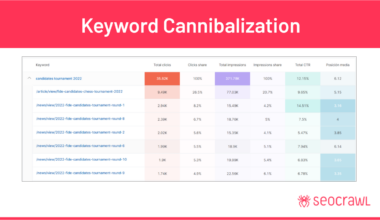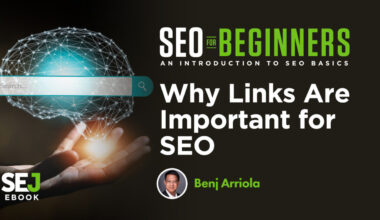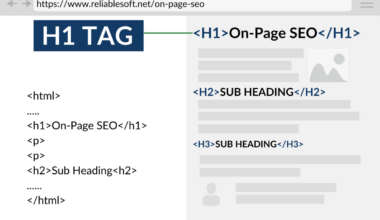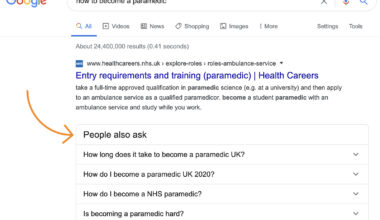Introduction to SEO
As a website owner, you want your site to be visible and easily found by potential visitors. This is where Search Engine Optimization (SEO) comes into play. SEO helps to increase the visibility and ranking of your website in search engines like Google, Bing, and Yahoo.
To put it simply, SEO is the process of optimizing your website’s content and structure to make it easier for search engines to understand and rank it higher in search results. With SEO, you can attract more organic traffic to your site and improve your online presence.
There are several factors that contribute to a website’s SEO performance, including keyword research, on-page optimization techniques, and off-page optimization strategies. In the following sections, we will delve deeper into each of these areas and provide you with actionable tips to improve your website’s SEO performance.
Before we move on to these specific areas of SEO, it’s important to note that SEO is an ongoing process. It requires time, effort, and patience to see results. However, with consistent optimization and monitoring, you can achieve long-term success and growth for your website.
To get started with SEO, it’s essential to have a clear understanding of your website’s goals, target audience, and competition. By doing so, you can create a solid SEO strategy that aligns with your business objectives and helps you stand out from the competition.
In the next section, we will explore the first step of SEO – keyword research.
Understanding Keyword Research
Keyword research is the foundation of any successful SEO strategy. It involves identifying the words and phrases that your target audience is using to search for information related to your business or industry.
To conduct keyword research, you can use various tools such as Google Keyword Planner, Ahrefs, SEMrush, or Moz. These tools provide valuable insights into the search volume, competition, and relevance of specific keywords.
Here are the steps to conduct keyword research:
1. Define your target audience – Before you begin your keyword research, it’s crucial to understand your target audience’s needs, interests, and pain points. By doing so, you can identify the keywords that are relevant to your audience and align them with your business objectives.
2. Brainstorm seed keywords – Start by creating a list of broad keywords related to your business or industry. For example, if you run a pet store, your seed keywords could be “pet food,” “dog toys,” or “cat litter.”
3. Use keyword research tools – Use keyword research tools to generate a list of related keywords for each seed keyword. These tools will provide you with insights into the search volume, competition, and relevance of each keyword.
4. Analyze keyword metrics – Once you have a list of potential keywords, analyze their metrics to determine their potential value. Look for keywords with high search volume, low competition, and high relevance to your target audience.
5. Refine your keyword list – Refine your keyword list by removing irrelevant or low-value keywords and focusing on the ones that align with your business objectives and target audience.
By conducting thorough keyword research, you can optimize your website’s content and structure to target the right keywords and attract more organic traffic to your site.
In conclusion, keyword research is the first step in any successful SEO strategy. It helps you understand your target audience’s search behavior and identify the keywords that will drive traffic and leads to your website. By following the steps outlined above, you can conduct effective keyword research and optimize your website’s content for better SEO performance.
On-Page Optimization Techniques
On-page optimization refers to the various techniques that you can use to optimize the content and structure of your website’s pages to improve their visibility and ranking in search engine results pages (SERPs). Here are some effective on-page optimization techniques that you can implement:
1. Title tags and meta descriptions – These are HTML elements that provide a brief summary of the content of a web page. Title tags and meta descriptions are displayed in SERPs and can influence click-through rates. Make sure to include your primary keyword in the title tag and meta description to increase their relevance to search queries.
2. Header tags – These are HTML tags that indicate the importance of the content on a web page. Use header tags (H1, H2, H3) to structure your content and make it easier for search engines to understand the main topics on your page.
3. Content optimization – Make sure that your content is high-quality, relevant, and engaging for your target audience. Use your primary and secondary keywords naturally in your content, but avoid keyword stuffing. Also, include relevant images, videos, and infographics to enhance the user experience.
4. URL structure – Use a clear and concise URL structure that includes your primary keyword and is easy for users and search engines to understand. For example, if your primary keyword is “best pizza in New York,” your URL could be www.yourwebsite.com/best-pizza-new-york.
5. Internal linking – Use internal linking to guide users and search engines to other relevant pages on your website. This can improve user engagement and help search engines understand the structure of your website.
6. Mobile optimization – Make sure that your website is mobile-friendly and optimized for mobile devices. This can improve user experience and increase your website’s visibility in mobile search results.
7. Page speed – Optimize your website’s page speed to improve user experience and search engine ranking. Use tools like Google PageSpeed Insights to identify areas for improvement, such as image optimization, browser caching, and minification of CSS and JavaScript files.
By implementing these on-page optimization techniques, you can improve the visibility and ranking of your website in search engine results pages. Remember to prioritize user experience and relevance to your target audience when optimizing your website’s content and structure.
In the next section, we will explore off-page optimization strategies to further improve your website’s SEO performance.
Off-Page Optimization Strategies
Off-page optimization refers to the various techniques that you can use to improve your website’s visibility and ranking in search engine results pages (SERPs) through external factors that are not directly related to your website’s content or structure. Here are some effective off-page optimization strategies that you can implement:
1. Link building – Link building is one of the most important off-page optimization techniques. It involves acquiring backlinks from other high-quality websites to your website. Backlinks can improve your website’s authority, relevance, and visibility in search engine results pages. However, it’s important to focus on acquiring natural and relevant backlinks from trustworthy websites, rather than using spammy or manipulative tactics.
2. Social media marketing – Social media marketing can also improve your website’s visibility and authority. By creating and sharing high-quality content on social media platforms, you can attract more followers, engagement, and referral traffic to your website. Social media can also help you build relationships with your target audience and influencers in your industry.
3. Guest blogging – Guest blogging involves writing and publishing high-quality content on other websites as a guest author. Guest blogging can help you build relationships with other websites and attract referral traffic and backlinks to your website. However, it’s important to focus on publishing on relevant and trustworthy websites, rather than using low-quality or spammy guest blogging tactics.
4. Influencer marketing – Influencer marketing involves collaborating with influencers in your industry to promote your products or services. Influencers can help you reach a larger audience and improve your website’s visibility and authority. However, it’s important to focus on building genuine relationships with influencers and providing value to their followers, rather than using manipulative or spammy tactics.
5. Online directories – Online directories can also help you improve your website’s visibility and authority. By listing your website on relevant and trustworthy directories, you can attract referral traffic and improve your website’s credibility and relevance to search engines. However, it’s important to focus on listing your website on high-quality directories, rather than using low-quality or spammy directories.
By implementing these off-page optimization strategies, you can improve your website’s visibility, authority, and relevance in search engine results pages. Remember to focus on providing value to your target audience and building genuine relationships with other websites and influencers in your industry.
Final Thought
SEO is a complex and ever-evolving field that requires consistent effort and dedication to achieve long-term success. By understanding the basics of SEO, conducting thorough keyword research, implementing effective on-page optimization techniques, and using off-page optimization strategies, you can improve your website’s visibility, traffic, and ranking in search engine results pages.
However, it’s important to remember that SEO is not a one-time fix. It requires ongoing monitoring, analysis, and optimization to keep up with the changing search algorithms and user behavior. Therefore, it’s essential to stay up-to-date with the latest trends and best practices in SEO and adjust your strategy accordingly.
In addition, it’s crucial to prioritize user experience and relevance to your target audience when optimizing your website’s content and structure. By creating high-quality, engaging, and valuable content that meets your audience’s needs and interests, you can attract and retain more organic traffic to your site.
Finally, keep in mind that SEO is just one aspect of a successful online marketing strategy. It’s important to complement your SEO efforts with other digital marketing channels, such as social media, email marketing, and paid advertising, to achieve your business objectives and stand out from the competition.
By following these tips and staying committed to your SEO strategy, you can achieve long-term success and growth for your website and business.






















